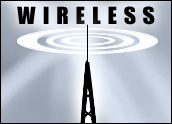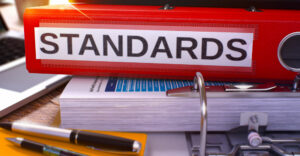
Following Monday’s tragic terror attack at the Boston Marathon, it was reported that cellular phone service was intentionally shut off to prevent any possible activation of other explosive devices remotely via mobile phones. As details emerged, it became clear that no shutdown was actually ordered.

Although heavy usage did overload cellular systems, service did remain available throughout the day, the mobile carriers said. In fact, cellular providers had actually increased network capacity in advance of Monday’s Boston Marathon, but even that extra capacity left many unable to connect with friends and family following the bombings.
“For personal communication, most of us are at the mercy of cellular and Internet providers,” said Jon Seals, editor-in-chief of the Disaster Recovery Journal.
Service interruptions or slowdowns can be especially disheartening for those who’ve become accustomed to constant tweets, texts and emails in addition to good old voice calls. When disaster strikes, users may find themselves suddenly cut off — but it doesn’t have to be this way.
“There are a number of emergency notification vendors that service businesses, municipalities and other organizations,” noted Seals. “Aside from communicating through the same cellular and Internet providers, many of those vendors also offer satellite technology and other dedicated channels of crisis communication.”
Network Overloads
While the media often respond to tragic events at lightning speed, providing a constant stream of updates — even when little information is available — these snippets of information often serve to exacerbate the worries of those watching, listening or reading at home who are unable to reach loved ones in the epicenter of such an event.
“There always seem to be outages during a crisis,” said telecommunications analyst Jeff Kagan. In this case, it seems the networks were not shut down. Rather, they were just overloaded. Overloading can happen during a crisis or any other time there is a sudden wave of calls.”
Whenever an outage occurs, it creates high anxiety, as people have become used to being in the information loop. In the event of an emergency, that anxiety takes on greater urgency.
“Cellphones not working during the height of a crisis or disaster appears common,” noted David M. Neal, Ph.D., director of the Center for the Study of Disasters and Extreme Events at Oklahoma State University.
“In the case of the bombing, carriers can bring in additional towers to alleviate the problem — they often do this for other large sporting events, such as football games. In broader scale events, such as hurricanes, the problem is more profound and takes longer to fix,” he told TechNewsWorld.
Alternative Communications
One problem with voice calls is that they take a lot of bandwidth, but in many cases even when the networks are overloaded for voice, data can still flow. The key here is to avoid contributing to the problem.
“In California, for example, wireline phone service used to be briefly blocked after an earthquake, because so many people picked up at their phones at once,” said telecommunications analyst Stephen Blum of Tellus Ventures Associates.
At these times, looking for alternative means to communicate is a better way to go.
“About six years ago, a freeway bridge collapsed in Minneapolis and the same sort of immediate congestion happened,” Blum told TechNewsWorld. “People there jumped on a partially built WiFi network to communicate. Because it was new, not many people were using it, so it probably performed better than the mobile networks at that moment. Workarounds like WiFi do help.”
There are options today that weren’t available a few years ago.
“There are social networks like Facebook Twitter and LinkedIn,” noted Kagan, that can be used to broadcast one’s safety.
However, these systems can be overloaded as well, if too many people turn to whatever channels are open.
“Skype or related technologies would have the same bandwidth type of issues,” Neal pointed out. “We need to think about more retro or analog means to communicate during the initial response phase.”
Too Much Information
What complicates communications in difficult situations is that many people on the ground try to share too much information when they should just report that they are safe and out of immediate danger. Although the media are already reporting all the details, many at the scene might try to convey the same information via their phones, clogging the networks.
“If you are in an emergency area and if you are not in danger, just text a message to a few people that you are safe,” suggested Oklahoma State University’s Neal. “A text message takes a lot less bandwidth than a phone call, emailing a message and a photo, or downloading files. This is a matter of public education that should be done in advance.”
However, this could be less of a problem in the future, as network capacity increases and new methods are offered for sharing of information during a crisis. Even with networks in Boston congested, the communications situation could have been far worse.
“If something like this happened 30 years ago, people would have been lined up around the block waiting to use payphones,” said Blum. “Going forward, a couple of things will continue to improve immediate emergency communications.”
First, more and more mobile bandwidth is being deployed.
“Usage is growing even faster for the present, but just having more bandwidth generally available will give mobile networks greater ability to absorb sudden traffic surges,” Blum noted. “Second, the software and equipment being deployed is getting better, and over time techniques will be developed to deal with surges automatically. Delays will [not] ever be eliminated in an emergency situation, but the problem will continue to decrease over time.”
For now however, planning ahead might be the best advice of all.
“If people do attend a large event, such as a sporting event, as a matter of planning, families or groups of people should have a plan in place of where to meet if an explosion or other type of event occurs,” said Neal.





















































